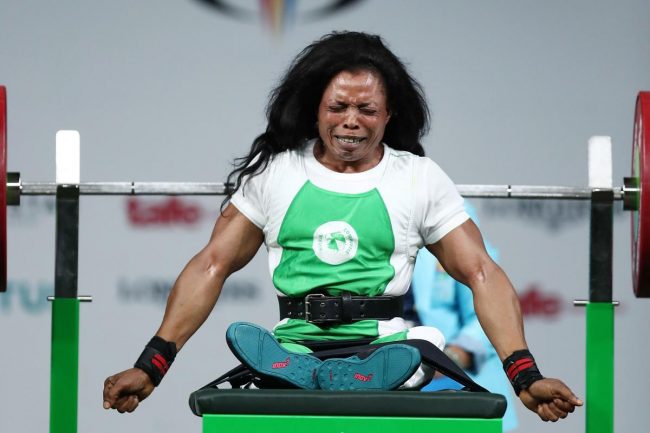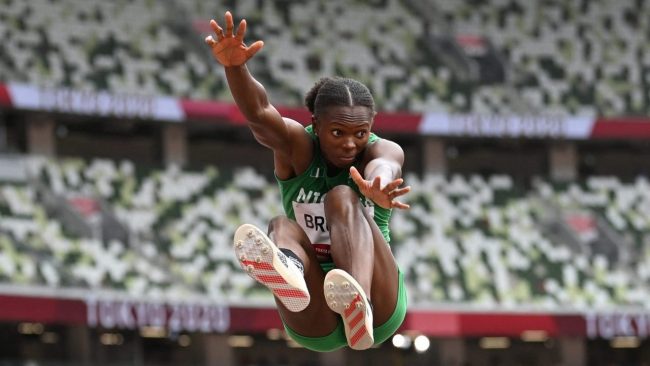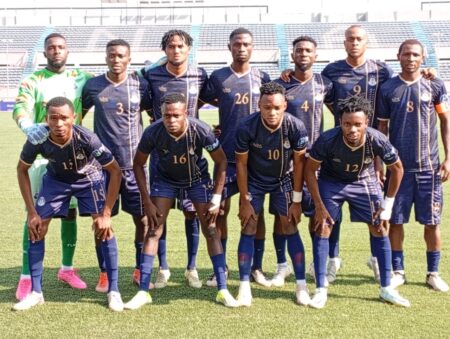The International Paralympic Committee (IPC) has banned Nigeria’s London 2012 Paralympic gold medal winner in powerlifting, Esther Oyema, for four years after she committed an anti-doping rule violation (ADRV).
The IPC made the announcement on their official website on Wednesday.
Onyema who won gold in the women’s up to 48kg at the 2012 games, returned an adverse analytical finding for a prohibited substance in a urine sample provided on 28 January 2019 after competing at the Lagos 2019 International Para Powerlifting Competition in Nigeria.
Also Read: Udeze: Why Babayaro, Aiyegbeni, Agali Were Kicked Out Of 2004 AFCON
The substance was 19-norandrosterone which is included on the World Anti-Doping Agency (WADA) 2019 Prohibited List under the class S1.1B Endogenous Anabolic Androgenic Steroids (AAS) and their Metabolites and isomers.
The implication of the violation means Oyema will not be eligible for competition for four years from 3 May 2019 to 2 May 2023.
Also, she has been stripped of the gold medal which she won in the women’s up to 55kg competition in Lagos, alongside any points and prizes.
Each athlete is strictly liable for the substances found in his or her sample. An ADRV occurs whenever a prohibited substance (or its metabolites or markers) is found in his or her bodily specimen, whether or not the athlete intentionally or unintentionally used a prohibited substance or was negligent or otherwise at fault.
As a signatory of the World Anti-Doping Code (WADC), the IPC remains committed to a doping-free sporting environment at all levels.
The IPC, together with the International Federations and the National Paralympic Committees, established the IPC Anti-Doping Code (the Code) to prevent doping in sport for Paralympic athletes, in the spirit of fair play.
The Code is in conformity with the general principles of the WADC.
Got what it Takes?
Predict and Win Millions Now












